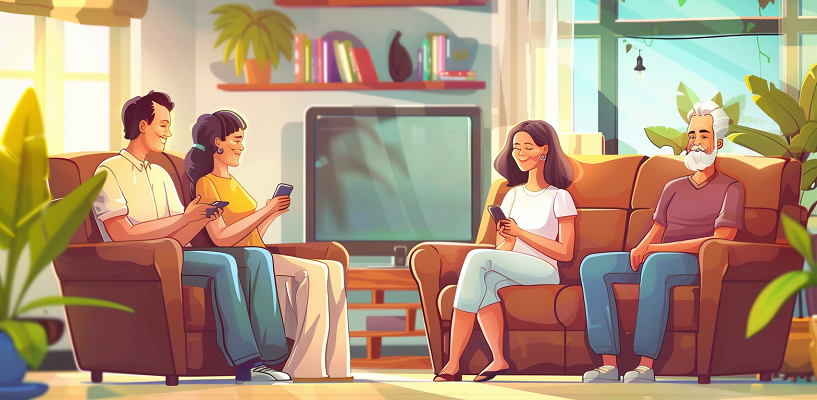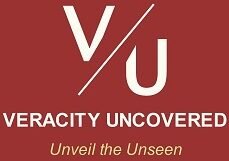- Home
- >>
- US
- >>
- Health
- >>
- Government
- >>
- MST
MST

More specifically, any sexual behavior that you get in against your “consent” is included in MST. As examples, consider:
- Without your permission, sexual activity or contact, even when you’re “drunk, asleep, or unconscious.”
- Being coerced into having sex (for example, by promises of better treatment in exchange for sex or “threats of unfavorable treatment if you refuse to cooperate”).
- Being made to feel uncomfortable by touching, grabbing, or flirting in a sexual way, especially during “hazing” incidents.
- Being “physically or powerfully” forced for having sex.
- Unwanted sexual approaches that you perceived as alarming.
- Comments, that made you feel threatened, about your “body appearance” or sexual behavior.
Military Sexual Trauma (MST) has been experienced by veterans of all sexes and backgrounds. Regardless of gender or “the specifics of your service,” veterans who have suffered MST can get assistance and support from the Department of Veterans Affairs (VA).
Learn more about the effects of MST on people by contacting VA. VA can offer you “treatment” to help you deal with the effects of MST on your life. Alternatively, if you would want, VA can offer treatment that includes a more “in-depth” conversation about your experiences.
How do I approach someone right now -
For private assistance, get in touch with the “compassionate, knowledgeable” Veterans Crisis Line responders if you’re a veteran experiencing a crisis or are worried about one. Numerous of these are themselves “veterans.” This is a “24-hour 7-days, free, and private” service.
To communicate with a responder from the Veterans Crisis Line at any time of “day or night”:
- Visit “veteranscrisisline.net/get-help-now/chat/” to start a private
- Dial 988 and choose option 1.
- Dial 711, then 988 to access
- Send an SMS to 838255.
Additionally, you can:
- Head to the closest emergency department.
- Make a 911 call.
- Proceed straight to the closest VA medical facility. It makes no difference if you are enrolled in VA health care or “have a status of discharge.” Navigate to “va.gov/find-locations/?facilityType=health” to discover the closest VA medical facility.
MST symptoms -
MST has affected people of various “sexes, ages, sexual orientations, racial and ethnic backgrounds, and service branches.” MST can have detrimental effects on a person’s “physical and mental health” as well as their overall quality of life, just like other forms of trauma, even years after the initial event.
MST is an experience rather than “a diagnosis” or a mental health disorder, and just like other types of traumas, people can react to MST in different ways. The kind, intensity, and length of a person’s concerns will differ depending on a number of variables, including “whether or not the person has experienced MST in the past,” the reactions they received from others during the MST, and “whether the MST occurred once or repeatedly over time.”
Among the things you might encounter are:
- Inability to feel
- Unsettling “dreams or memories.”
- Using “drugs or alcohol” to dull or avoid unpleasant emotions.
- Depression or numbness-related feelings.
- Anger, impatience, irritability, or “other intense feelings” that are difficult to control.
- Feeling cut apart from society.
- Problems falling asleep.
- Having “lowered self-esteem,” self-blame, or self-doubt feelings.
- Physical health issues.
There is an MST Coordinator at every VA medical facility who “can help you get access to care” and acts as a point of contact for any MST-related medical concerns. To locate MST Coordinators in your area, choose your state from the list at “mentalhealth.va.gov/msthome/vha-mst-coordinators.asp”.
Also, please contact the MST Outreach Coordinator at your local VBA Regional Office (locate out at “benefits.va.gov/benefits/mstcoordinators.asp”) for assistance getting MST-related disability compensation. Here, VBA stands for Veterans Benefits Administration.
You can be qualified for “disability benefits” if you suffered from MST and it aggravated the medical condition. Go to “va.gov/resources/military-sexual-trauma-and-disability-compensation/” for details on MST and “disability benefits.”
What MST-related services does VA offer -
- All VA medical centers and numerous community-based outpatient clinics offer outpatient MST services.
- As a member of a patient’s treatment team, numerous VA clinics provide the assistance of “peer specialists” who are qualified and professionally trained Peer specialists “provide hope, act as recovery role models, and assist Veterans with constructive coping mechanisms” by drawing on their own experiences.
- Community-based Vet Centers offer non-medical outpatient “counseling and referral” services relating to MST. Locate Vet Center at “va.gov/find-locations/?facilityType=vet_center”.
- VA also offers MST-related mental health treatment in “residential or inpatient” settings for those who require more comprehensive help. Some clinics feature separate programs for men and women since some people do not feel comfortable in “mixed-gender” treatment environments. There are “gender-specific” sleeping spaces in all residential and inpatient programs.
- When a VA clinician/provider finds that a patient would be better served by a non-VA community provider or “when services aren’t offered at a VA facility nearby,” VA may occasionally pay for the costs of medical services from a non-VA community provider.
- It is not required of you to “talk about or reveal” your MST experience when you first register with VA. Simply request an “appointment” for a clinical evaluation with a VA medical expert. The provider can talk with you about your health issues and “assist in acquiring the necessary medical or mental health referrals for MST.”
- If it makes them feel more at ease, patients have the “option” to request a clinician of a particular gender.
- It is not necessary for veterans to “be service connected” or “have a VA disability rating” in order to be eligible for free treatment for mental and physical health issues related to MST. Even if veterans are not qualified for other “VA care,” they might be able to get this care.
- Get the free, confidential, and secure self-help smartphone app “Beyond MST,” which is developed especially to promote the health and wellbeing of individuals who have had MST. With the app’s “more than thirty specialized tools and additional features,” you may manage symptoms, overcome obstacles, enhance your quality of life, and discover hope. Learn more about app at “mobile.va.gov/app/beyond-mst”.
- Visit the “Make the Connection” website to discover more information and support, as well as hear from veterans about how they recovered from the effects of MST. Visit the website at — “maketheconnection.net/conditions/military-sexual-trauma/”.
Eligibility for MST-related services -
Veterans and the majority of former Service members — including those who served for fewer than two years or who were discharged with an “other than honorable” status — are eligible for MST-related services. The “normal service duration restrictions” do not affect a person’s eligibility for care linked to MST. It is not necessary to have a “service connection,” or a VA disability rating.
The following groupings may also be eligible for care associated with MST experiences:
- Past members of the National Guard and Reserve with “a service-connected disability or federal active-duty service,” and were released either with honorable conditions or with a discharge that was not honorable. It is not necessary for the service-associated disability to be “tied” to your MST experiences.
- In case of “active-duty personnel,” certain types of care provided by VA might need a recommendation from the Defense Department.
Consider visiting the Defense Department (DOD) Safe Helpline website if you are active-duty personnel. It is a “crisis” support service for DOD employees/members who have experienced sexual assault. You can be anonymous and “not have to reveal your identity” when contacting the Safe Helpline. Through “text, online chat, or phone,” you can always access one-on-one guidance, assistance, and information. A “sexual assault response coordinator” on your base or installation can also be contacted. Visit the website at — “safehelpline.org/”.
Getting MST-related VA services -
One can use “any” of the following methods to get VA services associated with MST:
- Request to “talk” with the MST coordinator by giving your local VA medical facility a call. To locate MST Coordinators in your area, choose your state from the list at “mentalhealth.va.gov/msthome/vha-mst-coordinators.asp”.
- Consider alerting your VA healthcare physician/provider, that you had MST, if you have one. As appropriate, your clinician/provider can give assistance and treatment referrals.
- Make contact with a Vet Center and request a “consultation” for counseling related to MST. Locate Vet Center at “va.gov/find-locations/?facilityType=vet_center”.
You can receive assistance in the following ways if you are “homeless” or at risk of becoming so:
- To find out about programs for homeless veterans, visit “va.gov/homeless/”.
- Call 877-424-3838 (TTY: 711) to reach the “National Call Center” for Homeless Veterans. The conversation will be “private and cost-free.” Information regarding VA homeless services, medical treatment, and “other local services” can be obtained from a qualified VA counselor.
- Give the VA Community Resource and Referral Center in your area “a call” or stop by. Visit “va.gov/HOMELESS/Crrc.asp” to locate your neighborhood Community Resource and Referral Center. Even if you are not eligible for VA health benefits, VA staff can assist you in locating “non-VA resources” in your community that you might be eligible for.
Additionally, you can reach the VA general information “hotline” between 8:00 a.m. and 9:00 p.m. ET, Monday through Friday, by calling 800-827-1000.
Link to official page of “MST”: https://www.va.gov/health-care/health-needs-conditions/military-sexual-trauma/
That’s all friends.
Suggestions or corrections for this page can be submitted from the “contact us” page.
Ads Section

